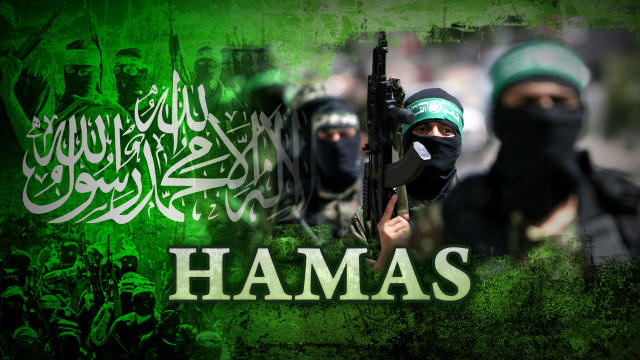Gaza: Internal Hamas government memo calls for ‘activities to reduce interaction with Christmas’

Once again, anger and fear resurface among Christians living in the Gaza Strip and the West Bank, who also are preparing to celebrate Christmas amidst the restrictions due to the Covid19 pandemic.
However, their concerns are not because of the spread of coronavirus, but rather because of a letter (which was made public on social media and other Palestinian websites) that was sent to the government of Hamas in Gaza regarding the upcoming celebrations of Christmas.
The letter, entitled “Activities to reduce interaction with Christmas during the next two weeks,” was sent by the Director-General of the General Administration of Preaching and Counseling of the Palestinian Endowment Ministry in Gaza.
In what appeared to be an official correspondence between Palestinian officials, the letter discussed the steps taken during “an emergency meeting” that was held in Gaza on December 15. It included the issuance of “awareness and guidance” that needed to be implemented by 10 departments within the Islamic Waqf ministry.
The main goal behind this campaign would include “issuing fatwas [to prohibit Muslims from participating in Christmas], releasing videos, and requesting some preachers” to talk about the great sins of celebrating their holidays with the Christians.
It is worth noting that the number of Christians still living in Gaza may not reach 1000, while the Orthodox and Catholic churches continue to provide parish services to the remaining families, in addition to two schools whose students are mostly Muslims.
After Hamas gained full control of the Strip, the Baptist Church in Gaza, which had operated since 1950, was soon almost shattered. In October 2007, Rami Ayyad, one of its active members in Gaza, who managed its Christian bookstore there, was kidnapped, tortured, and then killed.
After Ayyad’s assassination, seven church leaders left for the West Bank, while Hanna Massad, the church’s pastor, moved to Jordan with his family.
Since Hamas installed Shari’ah law in Gaza, which fomented further threats against the remaining Christians from Islamic extremists, Christians in general feared gathering in groups. They no longer wear crosses, while women dare not move around freely by themselves or be unveiled.
Hamas has always prohibited the Christians from holding public celebrations during Christmas and New Year, ever since its usurpation of power in 2007. This time, it intends to socially isolate them as well.
In the West Bank, the situation of the Christians may seem relatively better, but the fear of Islamic jihad remains a ghost haunting them.
The number of Christians in Bethlehem, which is under the control of the Palestinian Authority of Mahmoud Abbas, is rapidly dwindling. Christians today make up merely 15% of what was once known as a Christian-majority town. The violent military actions taken by Fatah militants wreaked havoc on the traditional birthplace of Jesus Christ after the outbreak of the so-called Al-Aqsa Intifada in 2000.
Palestinian Christians singing Christmas carol near the Church of the Nativity
A few years ago, a visa clerk at the US consulate disclosed to this writer that Palestinian Christians who met the US tourist visa requirements often decided to overstay their visit to the United States, and eventually applied for political asylum because of fear of growing Islamic jihad activity within the Palestinian society. Those applicants share with the USCIS in secrecy their valid stories of persecution at the hands of “their Muslim brethren.”
On the other side of the country, Christians inside Israel tell a completely different story. They increasingly are incorporated in all walks of life, and their numbers are growing. It is worth noting that their academic achievements rival those of the majority Jewish population.
The head of the Israeli Christian Aramaic Association recently posted on his Facebook page an appeal to the Likud, the main party of the current Israeli government. “We call upon the Likud party which is the [ Israeli] government to open up for appointing Christians and to work on integrating our Christian community and our youth into the state of Israel. This is the responsibility of the members of the Likud party today.”
The Lord’s Prayer in Aramaic, recited by Shadi Khaloul, head of the Israeli Christian Aramaic Association
In Jordan, where Christians have lived so far in peace and safety and enjoyed opportunities that secured them access to both the public and the private sectors, the picture has begun to change.
Yesterday, The Students’ Union of the College of Sharia at the University of Jordan issued a statement expressing its refusal to erect a Christmas tree and light inside the university courtyard. It added that what the university did is a matter that does not appease God in a country whose religion is Islam.
“Muslims, in general, are living in a crisis because the image of Islam has worldwide been shaken. I am not surprised that they seek to defuse their anger in the remaining Christian minorities.” George Abu Kova, a Palestinian Christian who lives in the United States commented on Facebook in reply to Hamas’s letter against Christmas.
Samir Qumsiyeh, a former advisor to the Orthodox and Catholic Patriarchs in Jerusalem, expressed his dismay and anger to the letter in a post on Facebook, saying, “Hamas’s positions are well known. Have you forgotten that Ismail Haniyeh [Hamas Prime Minister] congratulated Erdogan for turning the Hagia Sophia Church into a mosque and thus ignored the feelings of Christians in general and the Christian Palestinians in particular? Then you hear from them that we are one people within all its components.” Unfortunately, our reality is painful and we have no future.“
COLUMN BY
RELATED ARTICLES:
UK: Muslim rape gangs still active, 2,000 victims in the last year were ‘fobbed off by authorities’
Iranian dissident kidnapped in Turkey after ‘honeytrap’ by Iran, faces execution
EDITORS NOTE: This Jihad Watch column is republished with permission. ©All rights reserved.
